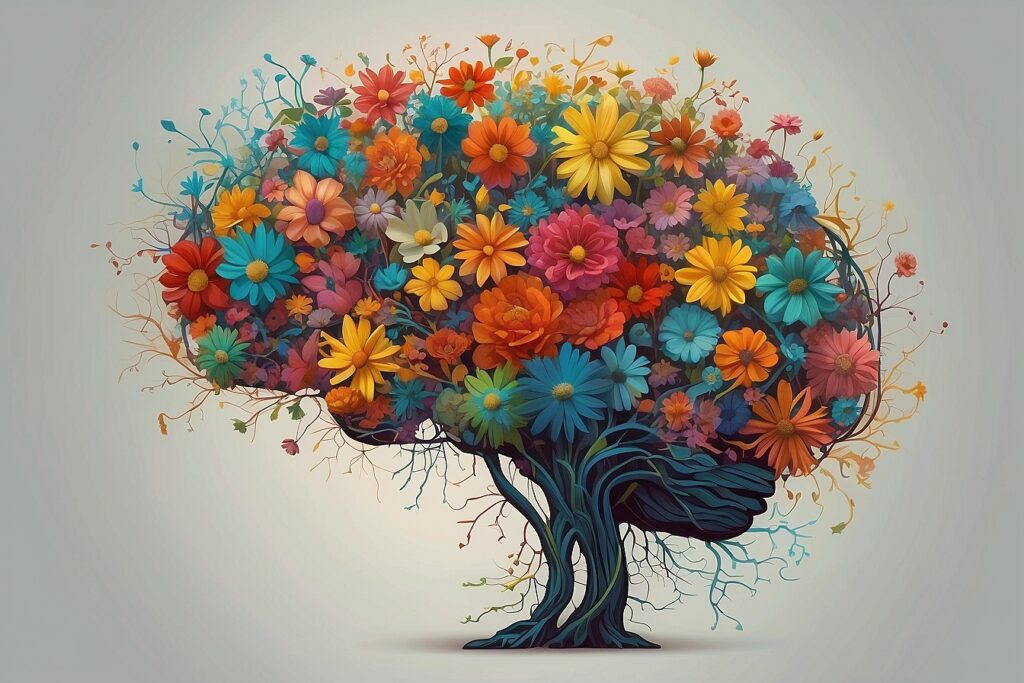Did you know being open-minded can lead to better problem-solving and increased creativity? Embracing new ideas and perspectives can open doors to endless possibilities. But what does “open-minded” really mean? By fostering an open mind, you invite growth, understanding, and innovation into your world. Join us on this journey to uncover the power of embracing diverse viewpoints and challenging conventional thinking.
Understanding Open-Mindedness

Definition
An open-minded person is someone willing to consider new ideas without prejudice. They are receptive to different perspectives and embrace the diversity of thoughts around them.
Open-mindedness involves having a flexible mindset that is open to change and growth. It allows individuals to expand their knowledge and understanding by exploring various viewpoints.
Importance
Being open-minded is crucial for personal development and fostering a growth mindset. It enables individuals to learn from others, challenge their beliefs, and adapt effectively to new situations.
Pros:
-
Embracing diversity of thoughts
-
Enhancing learning and personal growth
Cons:
-
Vulnerability to misinformation
-
Struggling with conflicting viewpoints
Open-mindedness significantly promotes personal growth by encouraging individuals to step out of their comfort zones and explore new ideas. It leads to enhanced creativity, problem-solving skills, and overall well-being.
Synonyms for Open-Minded
Receptive
Open-minded individuals are receptive to new ideas and perspectives, willing to consider viewpoints different from their own, and embrace diversity.
Unbiased
Being unbiased is a key trait of open-mindedness, allowing individuals to approach situations without preconceived notions or prejudices.
Flexible
Flexibility is essential for open-minded individuals who adapt their thoughts and beliefs based on new information and experiences.
Accepting
Those who are accepting exhibit open-mindedness by embracing various opinions and viewpoints without judgment. They welcome diversity of thought.
Tolerant
Tolerant individuals demonstrate open-mindedness by showing patience and understanding towards differing perspectives, fostering mutual respect.
Broad-Minded
Broad-minded terms encapsulate being open to various ideas, cultures, and beliefs. It signifies a willingness to explore diverse viewpoints.
Fair-Minded
Fair-minded individuals approach discussions and debates with impartiality and equity, valuing fairness in considering different opinions.
Open-Minded Usage in Sentences
Demonstrating Open-Mindedness
Open-mindedness is when someone is receptive to new ideas, experiences, or beliefs without immediately judging them. For instance, a sentence like “He always listens to different perspectives before forming his opinion” demonstrates open-minded behavior.
Another example could be “She is very open-minded about trying new foods,” highlighting a person’s willingness to explore and embrace new culinary experiences. These sentences showcase how open-mindedness can lead to positive outcomes and personal growth.
Emphasizing Positive Traits
When someone says, “I am open-minded about traveling to unfamiliar destinations,” it reflects their adventurous spirit and willingness to step out of their comfort zone. This phrase conveys a sense of curiosity and illustrates a positive attitude toward new adventures.
Similarly, using the phrase “Being open-minded about learning new skills has helped me grow professionally” emphasizes the importance of being receptive to acquiring knowledge and expertise. Such sentences highlight the benefits of embracing open-mindedness in various aspects of life.
Exploring the Etymology
Origin
The term “open-minded” dates back to the early 19th century, originating from a combination of “open” and “minded.” Research suggests that this phrase emerged to describe individuals who were receptive to new ideas.
Concept
The fusion of “open” and “minded” in the term “open-minded” signifies a willingness to consider diverse perspectives. This concept emphasizes receptivity to different opinions, fostering a mindset of acceptance and understanding.
Significance
Understanding the etymology of “open-minded” provides valuable insights into the essence of open-mindedness. By delving into its historical roots, we understand the importance of being open to new experiences and viewpoints.
Open-Minded in Everyday Language
Common Usage
Open-minded conversations often refer to being receptive to new ideas, experiences, and perspectives. People use this term when discussing the willingness to consider diverse viewpoints.
Keeping an Open Mind
Phrases like “keeping an open mind” are common in daily interactions. This expression emphasizes the importance of being flexible and receptive to different opinions.
Staying Open-Minded
“Staying open-minded” implies a willingness to learn and grow from various experiences. It suggests avoiding close-mindedness and embracing diversity.
Everyday Language
The term “open-minded” has seamlessly integrated into everyday language, reflecting society’s value on trust and understanding. It signifies a positive approach towards encountering new things.
Benefits of Being Open-Minded

Personal Growth
Being open-minded allows individuals to embrace new ideas and perspectives, fostering continuous learning and personal development. By being receptive to different viewpoints, one can expand their knowledge and understanding of the world.
Embracing diverse perspectives enables individuals to challenge their beliefs and values, leading to a broader outlook on life. This openness to new experiences encourages individuals to leave their comfort zones and explore uncharted territories.
Improved Relationships
An open-minded approach fosters better communication and empathy in relationships. By listening actively and considering others’ opinions without judgment, individuals can build stronger connections with those around them.
Empathy plays a crucial role in fostering understanding and compassion towards others. When individuals are open-minded, they are more likely to appreciate the unique experiences and backgrounds of others, leading to deeper and more meaningful relationships.
Creativity, Problem-Solving, and Adaptability
Open-mindedness is closely linked to creativity as it allows for exploring unconventional ideas and solutions. Embracing innovative approaches stimulates creative thinking and inspires fresh perspectives on challenges.
In problem-solving scenarios, open-minded individuals are more likely to consider multiple solutions and approaches before reaching a conclusion. This flexibility in thinking enhances adaptability, enabling individuals to easily navigate unforeseen obstacles.
Encouraging Open-Mindedness
Cultivating Open-Mindedness
To foster open-mindedness, regularly expose yourself to new ideas and perspectives. Engage in activities that challenge your current ways of thinking. Embrace ambiguity and view challenges as opportunities for growth.
Importance of Diverse Perspectives
Exposure to diverse perspectives is crucial for developing an open mind. It allows you to see issues from various angles, leading to a more well-rounded understanding. Embracing different viewpoints can enhance creativity and problem-solving skills.
Active Listening and Empathy
Active listening involves giving full attention to the speaker without interruption. By practicing active listening, you demonstrate respect for others’ opinions and willingness to understand their point of view. Empathy plays a key role in promoting open-minded attitudes by allowing you to connect emotionally with others.
Misconceptions About Open-Mindedness
Agreeing with Everything
Many people mistakenly believe that being open-minded means agreeing with everything they hear. In reality, open-mindedness involves considering different perspectives without necessarily accepting them.
Blind Acceptance
Another common misconception is that open-minded individuals blindly accept any belief or opinion. However, true open-mindedness requires critical thinking and discernment.
Confirmation Bias
e may think that having an open mind means abandoning their beliefs entirely. On the contrary, being open-minded involves recognizing and addressing confirmation bias.
Flexibility in Beliefs
Open-mindedness does not require individuals to abandon their beliefs altogether. Instead, it encourages them to be flexible and willing to adjust their beliefs based on new information.
Exploring Different Opinions
Being open-minded does not mean constantly changing one’s opinions. It simply implies a willingness to explore different viewpoints and consider them thoughtfully.
Final Remarks
Being open-minded is your ticket to growth in a world that thrives on diversity and new ideas. Embrace the synonyms, understand the misconceptions, and reap the benefits of this mindset. Open-mindedness isn’t just a concept; it’s a way of life that can lead you to endless possibilities. Challenge yourself to break free from preconceived notions and welcome fresh perspectives with open arms.
Encourage those around you to adopt the same mindset. Spread the word about the power of open-mindedness and watch how it transforms interactions and relationships. Stay curious, stay receptive, and watch how your world expands exponentially. Your journey towards becoming more open-minded starts now!

